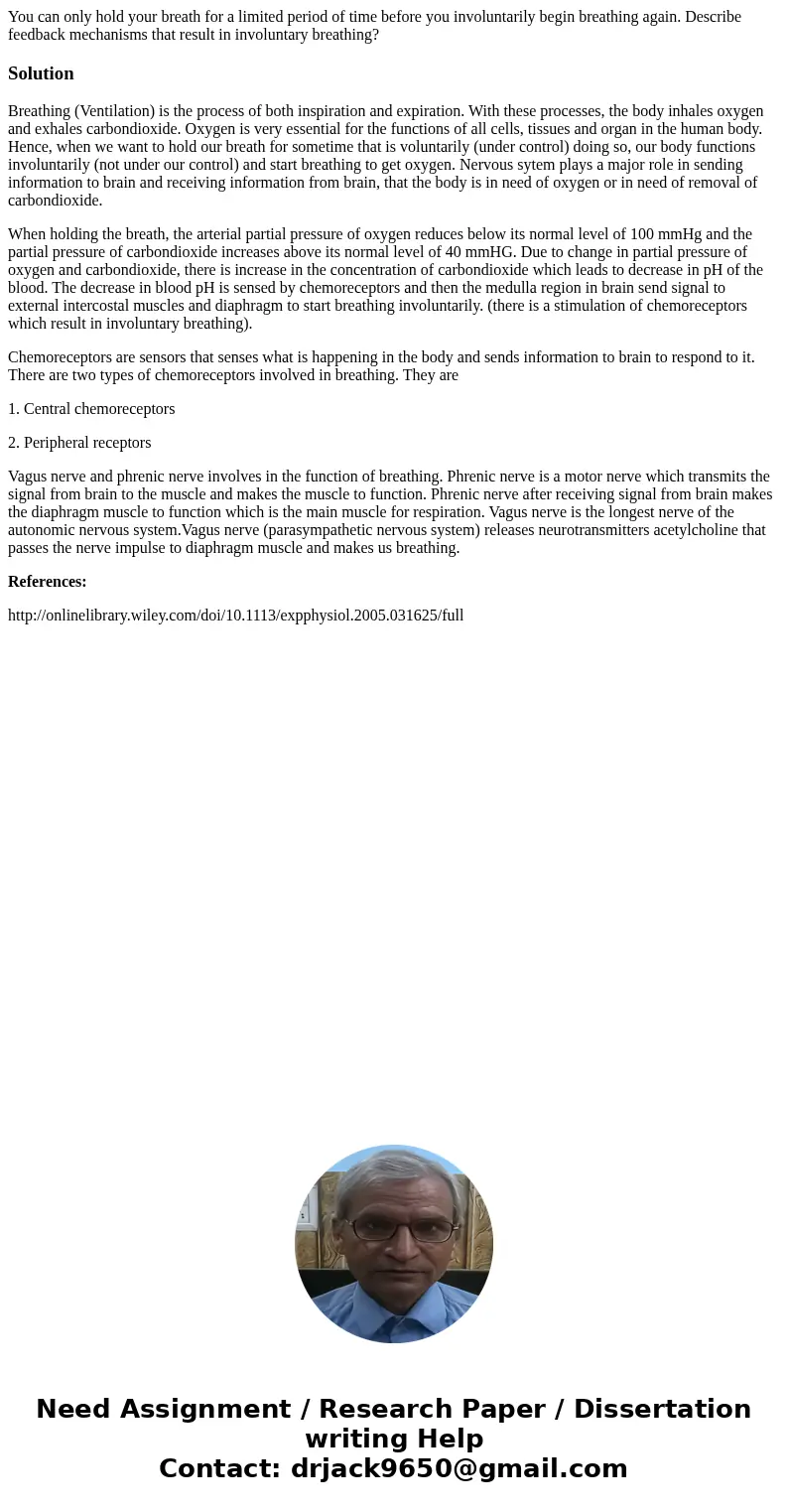You can only hold your breath for a limited period of time b
You can only hold your breath for a limited period of time before you involuntarily begin breathing again. Describe feedback mechanisms that result in involuntary breathing?
Solution
Breathing (Ventilation) is the process of both inspiration and expiration. With these processes, the body inhales oxygen and exhales carbondioxide. Oxygen is very essential for the functions of all cells, tissues and organ in the human body. Hence, when we want to hold our breath for sometime that is voluntarily (under control) doing so, our body functions involuntarily (not under our control) and start breathing to get oxygen. Nervous sytem plays a major role in sending information to brain and receiving information from brain, that the body is in need of oxygen or in need of removal of carbondioxide.
When holding the breath, the arterial partial pressure of oxygen reduces below its normal level of 100 mmHg and the partial pressure of carbondioxide increases above its normal level of 40 mmHG. Due to change in partial pressure of oxygen and carbondioxide, there is increase in the concentration of carbondioxide which leads to decrease in pH of the blood. The decrease in blood pH is sensed by chemoreceptors and then the medulla region in brain send signal to external intercostal muscles and diaphragm to start breathing involuntarily. (there is a stimulation of chemoreceptors which result in involuntary breathing).
Chemoreceptors are sensors that senses what is happening in the body and sends information to brain to respond to it. There are two types of chemoreceptors involved in breathing. They are
1. Central chemoreceptors
2. Peripheral receptors
Vagus nerve and phrenic nerve involves in the function of breathing. Phrenic nerve is a motor nerve which transmits the signal from brain to the muscle and makes the muscle to function. Phrenic nerve after receiving signal from brain makes the diaphragm muscle to function which is the main muscle for respiration. Vagus nerve is the longest nerve of the autonomic nervous system.Vagus nerve (parasympathetic nervous system) releases neurotransmitters acetylcholine that passes the nerve impulse to diaphragm muscle and makes us breathing.
References:
http://onlinelibrary.wiley.com/doi/10.1113/expphysiol.2005.031625/full

 Homework Sourse
Homework Sourse